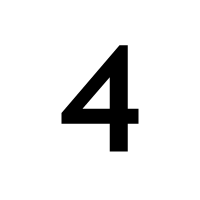- Afghanistan
- Åland Islands
- Albania
- Algeria
- American Samoa
- Andorra
- Angola
- Anguilla
- Antarctica
- Antigua and Barbuda
- Argentina
- Armenia
- Aruba
- Australia
- Austria
- Azerbaijan
- Bahamas
- Bahrain
- Bangladesh
- Barbados
- Belarus
- Belgium
- Belize
- Benin
- Bermuda
- Bhutan
- Bolivia
- Bonaire, Sint Eustatius, and Saba
- Bosnia and Herzegovina
- Botswana
- Bouvet Island
- Brazil
- British Indian Ocean Territory
- British Virgin Islands
- Brunei
- Bulgaria
- Burkina Faso
- Burundi
- Cambodia
- Cameroon
- Canada
- Cape Verde
- Cayman Islands
- Central African Republic
- Chad
- Chile
- China
- Christmas Island
- Cocos [Keeling] Islands
- Colombia
- Comoros
- Cook Islands
- Costa Rica
- Croatia
- Cuba
- Curaçao
- Cyprus
- Czech Republic
- Congo - Kinshasa
- Denmark
- Djibouti
- Dominica
- Dominican Republic
- Timor-Leste
- Ecuador
- Egypt
- El Salvador
- Equatorial Guinea
- Eritrea
- Estonia
- Ethiopia
- Falkland Islands
- Faroe Islands
- Fiji
- Finland
- France
- French Guiana
- French Polynesia
- French Southern Territories
- Gabon
- Gambia
- Georgia
- Germany
- Ghana
- Gibraltar
- Greece
- Greenland
- Grenada
- Guadeloupe
- Guam
- Guatemala
- Guernsey
- Guinea
- Guinea-Bissau
- Guyana
- Haiti
- Heard Island and McDonald Islands
- Honduras
- Hong Kong SAR China
- Hungary
- Iceland
- India
- Indonesia
- Iran
- Iraq
- Ireland
- Isle of Man
- Israel
- Italy
- Côte d’Ivoire
- Jamaica
- Japan
- Jersey
- Jordan
- Kazakhstan
- Kenya
- Kiribati
- Kosovo
- Kuwait
- Kyrgyzstan
- Laos
- Latvia
- Lebanon
- Lesotho
- Liberia
- Libya
- Liechtenstein
- Lithuania
- Luxembourg
- Macau SAR China
- Macedonia
- Madagascar
- Malawi
- Malaysia
- Maldives
- Mali
- Malta
- Marshall Islands
- Martinique
- Mauritania
- Mauritius
- Mayotte
- Mexico
- Micronesia
- Moldova
- Monaco
- Mongolia
- Montenegro
- Montserrat
- Morocco
- Mozambique
- Myanmar [Burma]
- Namibia
- Nauru
- Nepal
- Netherlands
- Netherlands Antilles
- New Caledonia
- New Zealand
- Nicaragua
- Niger
- Nigeria
- Niue
- Norfolk Island
- North Korea
- Northern Mariana Islands
- Norway
- Oman
- Pakistan
- Palau
- Palestinian Territories
- Panama
- Papua New Guinea
- Paraguay
- Peru
- Philippines
- Pitcairn Islands
- Poland
- Portugal
- Puerto Rico
- Qatar
- Congo - Brazzaville
- Réunion
- Romania
- Russia
- Rwanda
- Saint Barthélemy
- Saint Helena
- Saint Kitts and Nevis
- Saint Lucia
- Saint Martin
- Saint Pierre and Miquelon
- Saint Vincent and the Grenadines
- Samoa
- San Marino
- São Tomé and Príncipe
- Saudi Arabia
- Senegal
- Serbia
- Serbia and Montenegro
- Seychelles
- Sierra Leone
- Singapore
- Sint Maarten
- Slovakia
- Slovenia
- Solomon Islands
- Somalia
- South Africa
- South Georgia and the South Sandwich Islands
- South Korea
- South Sudan
- Spain
- Sri Lanka
- Sudan
- Suriname
- Svalbard and Jan Mayen
- Swaziland
- Sweden
- Switzerland
- Syria
- Taiwan
- Tajikistan
- Tanzania
- Thailand
- Togo
- Tokelau
- Tonga
- Trinidad and Tobago
- Tunisia
- Turkey
- Turkmenistan
- Turks and Caicos Islands
- Tuvalu
- U.S. Virgin Islands
- Uganda
- Ukraine
- United Arab Emirates
- United Kingdom
- United States
- U.S. Minor Outlying Islands
- Uruguay
- Uzbekistan
- Vanuatu
- Vatican City
- Venezuela
- Vietnam
- Wallis and Futuna
- Western Sahara
- Yemen
- Zambia
- Zimbabwe
30 Common Interview Questions and Answers (With Tips)

30 Common Interview Questions and Answers (With Tips)
Preparation is key in interviews, and there are numerous generic interview questions you may be asked that examine the compatibility of your abilities, experience, education, and character attributes in a certain job and workplace. It's essential to prepare for interview questions ahead of time so you can properly convey your qualifications and personality. In this post, we will present a list of interview questions as well as some sample replies to help you prepare for your next job interview.
Answers to basic questions
The following general questions are utilised in virtually every business and for nearly every position. Recruiters ask these questions to assess your general experience, personality, and aptitude to deal with professional problems. Here are some of the most popular interview questions to anticipate:
1. Tell me a little bit about yourself.
This sort of introductory question allows you to go over the most important aspects on your resume. Give a brief history of your job, discuss your accomplishments, and conclude by expressing why you're here for this interview.
'I've been working as a personal assistant for the past eight years, servicing a range of CEOs and department heads.' I enjoy my job, especially when I can put my planning and efficiency skills to play. I believe I am now ready to advance to a more difficult level, which is why I am interested in being the executive assistant to the CEO.'
2. How would you define yourself?
This quiz seeks to determine your professional skills and limitations. It's also about self-awareness, thus supporting statements with solid data is beneficial.
'I'd say I'm a natural leader,' for example. In my last position, I took over a team that was struggling to fulfil their goals. I spoke with each team member, listened to their issues and challenges, and then shared my vision for the team with them. We started several new programmes to motivate everyone, and within six months, we were constantly exceeding our goals.'
3. What makes you unique?
Employers want to know why you are the greatest applicant among all the others. A combination of varied qualities and expertise, such as soft skills and technical knowledge, may help you stand out from the crowd.
'What distinguishes me is my blend of sales and customer service experience.' I understand the wants and frustrations of consumers since I've dealt with them before. This knowledge allows me to better lead them through sales talks.'
4. What inspires you to work here?
This interview question asks if you've done any research on the firm. Prepare for this response by knowing about your possible future employer's mission, history, and culture. You can stand out as a good prospective fit if you can demonstrate that your own objectives compliment the company's aims.
'I'm excited about your company's objective of assisting families in better managing their finances.' I grew up in a family where this was a problem, and I'd want to help those with a similar background.'
5. What inspires you?
Employers want people who will be passionate and engaged at work every day, thus they need to know if the task will motivate you. Give detailed, real-life instances of occasions when you've felt driven at work to demonstrate your excitement.
'I enjoy chatting to people, especially when I can help them,' for example. As a customer support agent, I've assisted several clients in troubleshooting problems with their services. I once walked a brand-new customer through her web portal, demonstrating how to make payments and examine her transaction history. I liked conversing with her and guiding her through the intricacies of my company's service. She was so appreciative for my assistance that she contacted my boss to express her gratitude.'
6. How do you deal with stress?
Workplace stress can emerge as a result of limitations, imminent deadlines, and other problems. As a result, businesses choose candidates who can focus and complete tasks even while under duress. Show how you efficiently handle stress by referring to how you made the most of these situations.
'I was once offered an assignment with a tight deadline.' I was first overwhelmed, then I calmed down and divided the assignment into discrete parts. I requested some co-workers to assist with some of these chores, which relieved some of the strain, and I devised a feasible strategy to complete the others. 'In the end, I was able to meet the deadline while producing high-quality work.'
7. What is the reason for your departure from your existing position?
Employers ask this question to learn more about what you're searching for in a new job and workplace. Always be nice about your prior employment, regardless of the circumstances that led to your departure. Concentrate on your professional objectives, what you intend to achieve, and why you believe this organisation is a good fit for you.
'I'm searching for a position that will allow me to focus on developing long-term customer connections.' In my present position, we have a short sales cycle, so I don't get to spend much time with specific clients. Relationship-building is my favourite aspect of sales, and I believe I'm strong at it, therefore I believe I'd be a good fit for this job.'
8. What are your long-term objectives?
Hiring managers want to know if you're going to be there for the long haul or if this is just a stepping stone in your career. Even if you don't intend to make this your profession, discuss how your aims connect with the company's mission.
'I'd like to continue honing my marketing talents and learning more about management over the following several years,' for example. I'm interested in working for a startup since I'll be exposed to new difficulties and will be able to engage with people from a variety of departments. I believe I could become a marketing department manager with the correct coaching.'
9. Can you tell me about a moment when you overcome a challenging job situation?
Such behavioural questions are frequently used to measure abilities such as critical thinking, communication, problem-solving, and time management. Respond in the STAR style, addressing the issue you had to deal with, the task at hand, the actions you took, and the outcomes of your efforts.
'I was stepping in for my manager when our biggest client expressed dissatisfaction with the team's performance.' I couldn't contact my boss to meet with the customer, so I reached out to them individually and went over their expectations step by step, identifying where we were having a disconnect. I drafted an action plan and asked if we could go through it again when my manager returned. She was able to present proof of progress on the action plan upon her return. After that, the client doubled their next order'.
10. What are your wage goals?
Employers might use this question to compare your professional worth to their own salary expectations. Examine the wage statistics for your position, industry, education, experience, and area, and then negotiate a competitive compensation. You may also tell the recruiting manager if you're willing to negotiate your compensation in return for benefits like flexible working hours.
'My pay expectation ranges between £25,750 and £27,100, which is common for a candidate with my level of expertise,' for example. However, if the chance to work from home existed, I would be willing to be flexible.'
11. Do you have any more questions?
This is your opportunity to demonstrate your level of involvement. The interviewer can tell whether you've done your homework and have researched the firm if you ask anticipatory, relevant questions. It's also an opportunity to learn whatever you need to know about the profession.
Examples:
According to sources, the corporation fared well last year.'
- Do you intend to grow?'
- 'Do you have any staff wellness programmes, such as gym memberships?'
- What type of career opportunities are open to a new employee in this position'?
Other basic interview questions to anticipate
Other questions regarding your personality and history you may be asked include:
- What piques your interest in this role?
- What are your strongest and weakest points?
- What would be your ideal job?
- What characteristics do you believe constitute a good leader?
- What attributes do you believe are required for this position?
- Why do you believe you are the best candidate for this position?
- What do you want to be in five years? ten years?
- How do you deal with changing deadlines?
- What do you hope to accomplish in your first 30 days in this position?
- When was your most recent peer review? What did your team say about you?
- What do you enjoy most about going to work? Which of these is your least favourite?
- What methods do you use to stay organised at work?
- What attributes do you seek in your future employer?
- Who are your role models, and why are they important to you?
- What are your interests and hobbies?
- What did you study at university? Why did you chose that particular topic?
- What was the most recent book you read? What were your thoughts on it?
- What is your most cherished professional accomplishment?

 by Admin
by Admin


